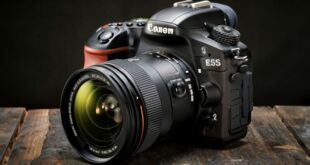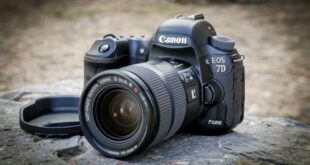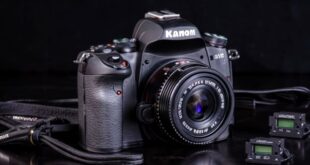Introduction
Hello everyone! Today, we will delve into the fascinating world of digital cameras and DSLRs, comparing their features, benefits, and drawbacks. In this article, we will provide you with an in-depth analysis of these two popular types of cameras, shedding light on which one might be the best fit for your photography needs. So, let’s dive right in!
1. Understanding Digital Cameras and DSLRs 📷
Before we begin examining the differences between digital cameras and DSLRs, let’s first understand what each of these terms means. A digital camera is a compact device that captures and stores photographs digitally, eliminating the need for traditional film. On the other hand, a DSLR, which stands for Digital Single-Lens Reflex, is a more advanced camera that combines the mechanisms of a traditional single-lens reflex camera with digital imaging sensors.
2. Compactness and Portability
📱 Digital cameras are incredibly convenient due to their compact size and lightweight nature. They easily fit into your pocket or bag, making them the perfect choice for on-the-go photography. However, DSLRs are bulkier and heavier, primarily due to their complex internal mechanisms and interchangeable lenses. While DSLRs offer superior image quality, their portability is often compromised.
3. Image Quality and Resolution
🌟 When it comes to image quality, DSLRs truly shine. Thanks to their larger image sensors and powerful processors, they produce stunningly sharp and detailed photos. DSLRs also offer higher resolution options, allowing you to capture images with incredible clarity and depth. On the other hand, digital cameras may have smaller sensors, resulting in slightly lower image quality and resolution, particularly in low-light conditions.
4. Versatility and Lens Options
🔍 One of the major advantages of DSLRs is their versatility in terms of lens options. With a wide range of interchangeable lenses available, you can capture images from various perspectives, whether it’s wide-angle shots, telephoto zooms, or macro photography. Digital cameras often have fixed lenses, limiting their flexibility. However, some advanced digital cameras offer limited lens options, enhancing their versatility to an extent.
5. Manual Controls and Creative Freedom
🎨 DSLRs provide photographers with full manual control over various settings such as aperture, shutter speed, and ISO, allowing for unlimited creative freedom. These manual controls enable photographers to experiment with different techniques and achieve the desired artistic effect. Digital cameras, while offering some manual control options, do not provide the same level of customization and flexibility as DSLRs.
6. Ease of Use and User-Friendliness
👍 Digital cameras are known for their user-friendly interfaces and simple operation. They are designed for beginners and casual photographers who want hassle-free shooting experiences. DSLRs, on the other hand, have steeper learning curves due to their advanced features and functionality. However, with dedication and practice, mastering a DSLR can ultimately lead to more professional and breathtaking results.
7. Price Range and Affordability
💲 When it comes to pricing, digital cameras are generally more affordable compared to DSLRs. They provide a cost-effective entry point into the world of photography, allowing beginners to start capturing memories without breaking the bank. On the contrary, DSLRs can be quite expensive, especially when you consider additional lenses and accessories. However, with the advancements in technology, the price gap between digital cameras and DSLRs is gradually narrowing.
| Features | Camera Digital | DSLR |
|---|---|---|
| Size and Portability | Compact and lightweight | Bulky and heavier |
| Image Quality | Good, but lower than DSLR | Excellent with high resolution |
| Lens Options | Limited due to fixed lenses | Extensive range of interchangeable lenses |
| Manual Controls | Basic manual options | Full manual control for advanced users |
| User-Friendliness | Simple and easy to use | Complex with a steep learning curve |
| Price Range | Affordable | Expensive |
Frequently Asked Questions
1. Which camera is better for beginners?
For beginners, a digital camera is a great choice due to its simplicity and affordability.
2. Are DSLRs only for professional photographers?
No, DSLRs can be used by both professionals and enthusiasts who want more control over their photography.
3. Can digital cameras capture high-quality images?
Yes, digital cameras can capture high-quality images, but DSLRs provide better image quality overall.
4. Are DSLRs worth the extra investment?
If you are passionate about photography and want to explore advanced techniques, investing in a DSLR is worth it.
5. Do digital cameras have any advantages over DSLRs?
Yes, digital cameras are more compact, portable, and user-friendly compared to DSLRs.
6. Can I use DSLR lenses on a digital camera?
No, DSLR lenses are designed specifically for DSLRs and are not compatible with digital cameras.
7. Are there any hybrid cameras that combine features of both?
Yes, there are hybrid cameras available that offer a blend of digital camera convenience and DSLR-like functionalities.
8. Can I shoot professional-quality photos with a digital camera?
While digital cameras have their limitations, skilled photographers can certainly produce professional-quality photos with them.
9. Which camera is better for landscape photography?
DSLRs are generally preferred for landscape photography due to their excellent image quality and wide lens options.
10. Can I shoot videos with a DSLR?
Yes, DSLRs are widely used for videography due to their superior image quality, manual controls, and lens options.
11. Are digital cameras suitable for action or sports photography?
Digital cameras can capture action shots, but their slower autofocus and burst modes make DSLRs a better choice for sports photography.
12. Do DSLRs have better low-light performance?
Yes, DSLRs generally perform better in low-light conditions due to their larger image sensors and superior noise reduction capabilities.
13. Are digital cameras becoming obsolete?
No, digital cameras continue to evolve and cater to specific photography needs, although DSLRs and mirrorless cameras are gaining popularity.
Conclusion
In conclusion, both digital cameras and DSLRs have their own strengths and weaknesses. Digital cameras offer portability, affordability, and user-friendliness, making them ideal for casual photographers and beginners. On the other hand, DSLRs provide unparalleled image quality, creative control, and versatility, making them the go-to choice for professionals and enthusiasts. Ultimately, your decision should be based on your photography goals, preferences, and budget. So grab your camera of choice and start capturing exceptional moments!
Closing Statement
Thank you for joining us on this journey as we explored the realm of digital cameras versus DSLRs. We hope this article has provided you with valuable insights and guidance to help you make an informed decision when choosing your next camera. Remember, whether you opt for a digital camera or a DSLR, what truly matters is the passion and creativity you bring to your photography. Happy clicking!


